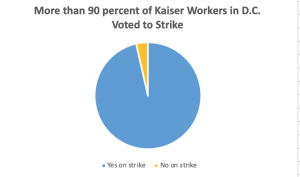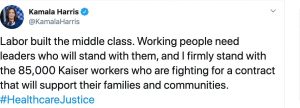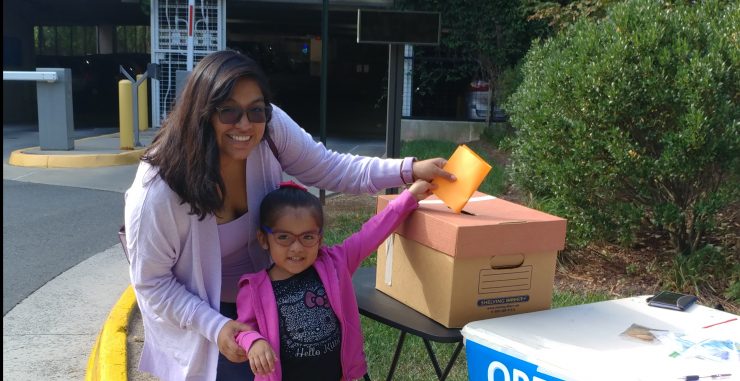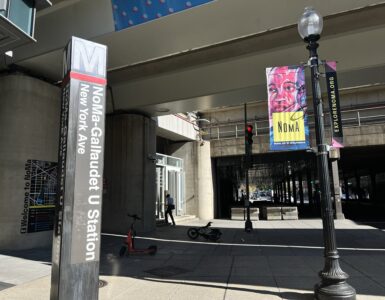October 1, 2019—Unionized workers at Kaiser Permanente medical centers in Capitol Hill and Farragut North in Washington D.C. may soon head to the polls to determine if they will ratify a new contract.
Technicians, receptionists, physical therapists, and pharmacists have been spending hours organizing their colleagues over the past two months. Workers want better raises in a city where costs are rapidly rising and they want to protect their pension. Other issues do not affect the workers directly but would mean that new hires get a worse deal, something that current employees said they weren’t willing to bargain for.
Kaiser Permanente and a coalition of unions representing 80,000 workers nationwide announced last week that they had reached a tentative agreement with the hope of avoiding a strike. But the vote to ratify the contract, which was scheduled for Tuesday, has been postponed as the parties address a few last-minute disagreements.
Grace Reckers, an organizer with OPEIU-Local 2, the union that represents 4,800 Kaiser members in the D.C. metro area, said that they were in “a bit of a limbo” but hoping to cement the terms of the temporary agreement that they reached last week. Reckers said that they were working on getting more information but she was not able to respond to detailed questions about the discussions before the deadline for this story.

Workers at Capitol Hill Medical Center, a seven-story medical facility next to Union Station, seemed hopeful about the tentative agreement.
“Overall they were giving us what we were asking for,” said Susan Moody, a shop steward and member experience receptionist at the medical center who has worked for Kaiser since she was hired on the spot more than 29 years ago. Moody said that she appreciates the organization and her job but voted for the strike to ensure that incoming staff would have the same benefits as other workers.

The vast majority of Kaiser workers are located on the West Coast where the health plan has more than 9 million members in California alone, compared to a little over 750,000 in the Mid-Atlantic states. But Kaiser is still a significant player in providing health insurance and care in D.C.
Moody said that the strike vote in D.C. showed that Kaiser workers had solidarity throughout the country.
More than 90 percent of the nearly 3,500 Kaiser employees in Washington D.C. who turned out to vote late last month opted for authorizing the strike.
“I think they didn’t figure local 2 would have the same level of solidarity,” Moody said. But she said the vote “showed we were going to stick together.”
The vote to strike at Kaiser received national attention in recent weeks. It would have been the largest strike in the United States in decades. Democratic candidates for the presidency like Senator Bernie Sanders of Vermont and Senator Kamala Harris of California took to Twitter to express their solidarity with Kaiser workers.

Kaiser is one of the largest unionized employers in the country. Over the past two decades it has experienced relative a relatively peaceful relationship with its workforce, supported by a labor-management partnership, which helps settle disputes and gives workers more of a say in the nonprofit’s decision-making.
The strike vote may show strains in that partnership.
Last year the group of unions representing workers in the labor-management partnership split into two groups. One group, which mostly represents nurses, settled a contract with Kaiser last year and did not join
the strike vote.

At Capitol Hill Medical Center in D.C., nurses are unionized with UFCW Local 400, which was largely silent about the strike.
Kaiser Permanente Mid-Atlantic did not immediately respond to a request for comment. Kaiser Permanente released a statement announcing the tentative agreement on September 25.

If the tentative agreement does not hold, and Kaiser workers go on strike, Capitol Hill Medical Center could see more than 200 employees walk out. Kaiser has said that it will ensure that patients still receive the same level of care.















Add comment